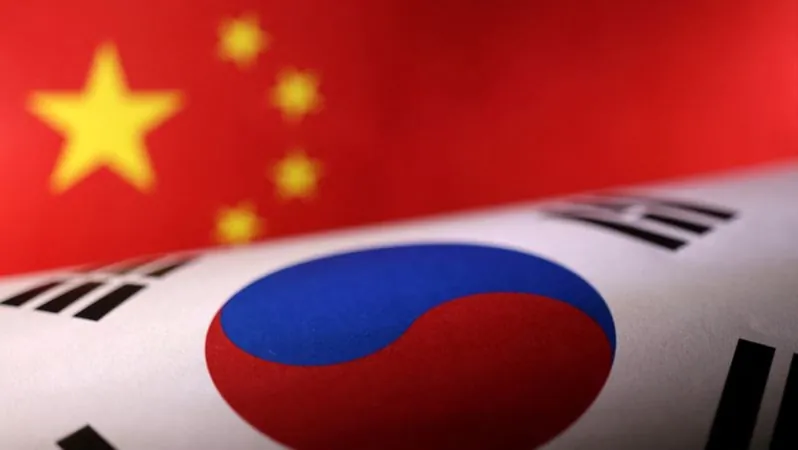
Tensions Rise as South Korea Establishes Monitoring Platform to Counter Chinese Expansion in Disputed Seas
2025-03-26
Author: Nur
SEOUL: In a strategic move to assert its presence in a contested area of the Yellow Sea, locally referred to as the West Sea, South Korea has launched a new floating monitoring platform. This initiative was announced by Oceans Minister Kang Do-hyung on Wednesday, March 26, amidst increasing concerns over China's construction activities in the region.
China claims that its newly built structures are merely fish farming equipment. However, these constructions have raised alarms in Seoul, where officials worry that Beijing could be attempting to solidify its claims in the Provisional Maritime Zone, an area where Chinese and South Korean exclusive economic zones intersect.
During a parliamentary session, Minister Kang detailed that the platform is designed for environmental surveys and is described as a "reciprocal measure" to Chinese actions in the area.
“South Korea has taken reciprocal measure with a large-scale floating object,” he stated, underscoring the country's commitment to monitoring and ensuring maritime security.
Tensions have escalated significantly; just last month, a South Korean research vessel attempting to investigate the Chinese structures encountered hostilities from Chinese coast guard ships, which reportedly included civilian rubber boats.
This confrontation resulted in a two-hour standoff with South Korean forces before they had to withdraw.
Lawmakers from the ruling People Power Party have voiced their distress, calling the Chinese activities a "direct challenge to marine security." Kwon Young-se, the party's emergency response committee chairman, expressed his views vehemently, comparing China's tactics in the West Sea to its assertive maneuvers in the South China Sea.
He emphasized, “The West Sea is not just a sea; the West Sea is Korea. It supports the livelihoods of many fishermen and stands as a front line of our national security.”
In response to South Korea’s concerns, a spokesperson for the Chinese embassy in Seoul refuted claims made about the structures, asserting that they do not breach any agreements.
They described these facilities as deep-sea fishery aquaculture structures located within China's coastal waters, defending them as legitimate uses of marine resources. The spokesperson also remarked on the importance of maintaining open communications between China and South Korea, expressing hope to avoid unnecessary political tensions regarding maritime disputes.


 Brasil (PT)
Brasil (PT)
 Canada (EN)
Canada (EN)
 Chile (ES)
Chile (ES)
 Česko (CS)
Česko (CS)
 대한민국 (KO)
대한민국 (KO)
 España (ES)
España (ES)
 France (FR)
France (FR)
 Hong Kong (EN)
Hong Kong (EN)
 Italia (IT)
Italia (IT)
 日本 (JA)
日本 (JA)
 Magyarország (HU)
Magyarország (HU)
 Norge (NO)
Norge (NO)
 Polska (PL)
Polska (PL)
 Schweiz (DE)
Schweiz (DE)
 Singapore (EN)
Singapore (EN)
 Sverige (SV)
Sverige (SV)
 Suomi (FI)
Suomi (FI)
 Türkiye (TR)
Türkiye (TR)
 الإمارات العربية المتحدة (AR)
الإمارات العربية المتحدة (AR)